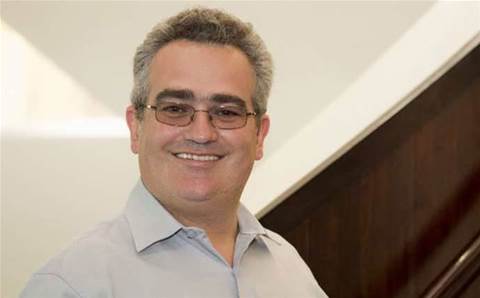Sydney-based managed services provider TribeTech has turned to subsidiary TribeDev to develop a quantum computing offering to customers.
TribeDev developed an algorithm that can be run on quantum computers rented out by major cloud providers.
TribeDev chief software architect Nick Beaugeard told CRN the offering comes with some services, products and even cloud to help customers solve certain business problems.
Potential target sectors include manufacturing, engineering, healthcare and research.
Beaugeard encouraged others to use quantum computing to solve certain mathematical algorithms and they would easily find a scenario where quantum would be of use.
“We all know how to resell Azure, GCP and AWS, every reseller in the world should know how to do that. Also resellers are getting smarter and they learn to write more and more code, leading to the growth of the reseller-ISV, or the MSP-ISV combo is growing,” Beaugeard said.
“So suddenly, they can start solving those problems for their customers, and resell the least quantum computing out to them, which is so far ahead of where most people think quantum computing is.”
The algorithm was developed after Beaugeard recognised the ongoing need to protect and encrypt data, and while the current tools used for that do a fairly good job, the need for encrypting data will only keep growing.
TribeDev, which was developed following the acquisition of Beaugeard’s HubOne by TribeTech, specialises in document management for accountants. That involves handling documents that contain sensitive information that need to be protected.
Beaugeard said the company was thinking of ways to build encryption algorithms that run on a mobile device that creates a true random number.
“In the Pentium chipset, there's actually a little bit of silicon in there which creates true random numbers,” he said. “It looks at interference around the chip and uses that as the random generator using a sequencing algorithm.”
However, he explained that the limits of the chipset meant it was possible that some numbers used in generating the sequence could then be used to identify which numbers worked with others. Thus, the algorithm would generate a number that was predictable.
Beaugeard sought a solution that could work with ARM chips (primarily used in smartphones but also by the likes of Apple, AWS and Microsoft) and support the company's product offerings that all run on WebAssembly. He turned to Microsoft’s Q Sharp programming language, where he found it was possible to write a quantum algorithm to generate a truly random number.
The algorithm is meant for processing certain machine learning algorithms at an accelerated rate, but not quite at the level of quantum entanglement, which Albert Einstein called “Spooky action at a distance”, which enables an infinite and instant way of transmitting data.
The machine learning applications would include areas that involve crunching vast amounts of big data like pharmaceutical research, where the process of creating learning algorithms are sped up dramatically and in turn, deliver savings for customers.
“I think as quantum computing expands like anything we've done in IT, it’s going to become more and more mainstream and easier to access,” Beaugeard said.
“With anything right on the bleeding edge, that’s where a reseller can charge big bucks as it will become a commodity in the near future.”






.png&h=142&w=230&c=1&s=1)
_(21).jpg&h=142&w=230&c=1&s=1)





.jpg&w=100&c=1&s=0)











